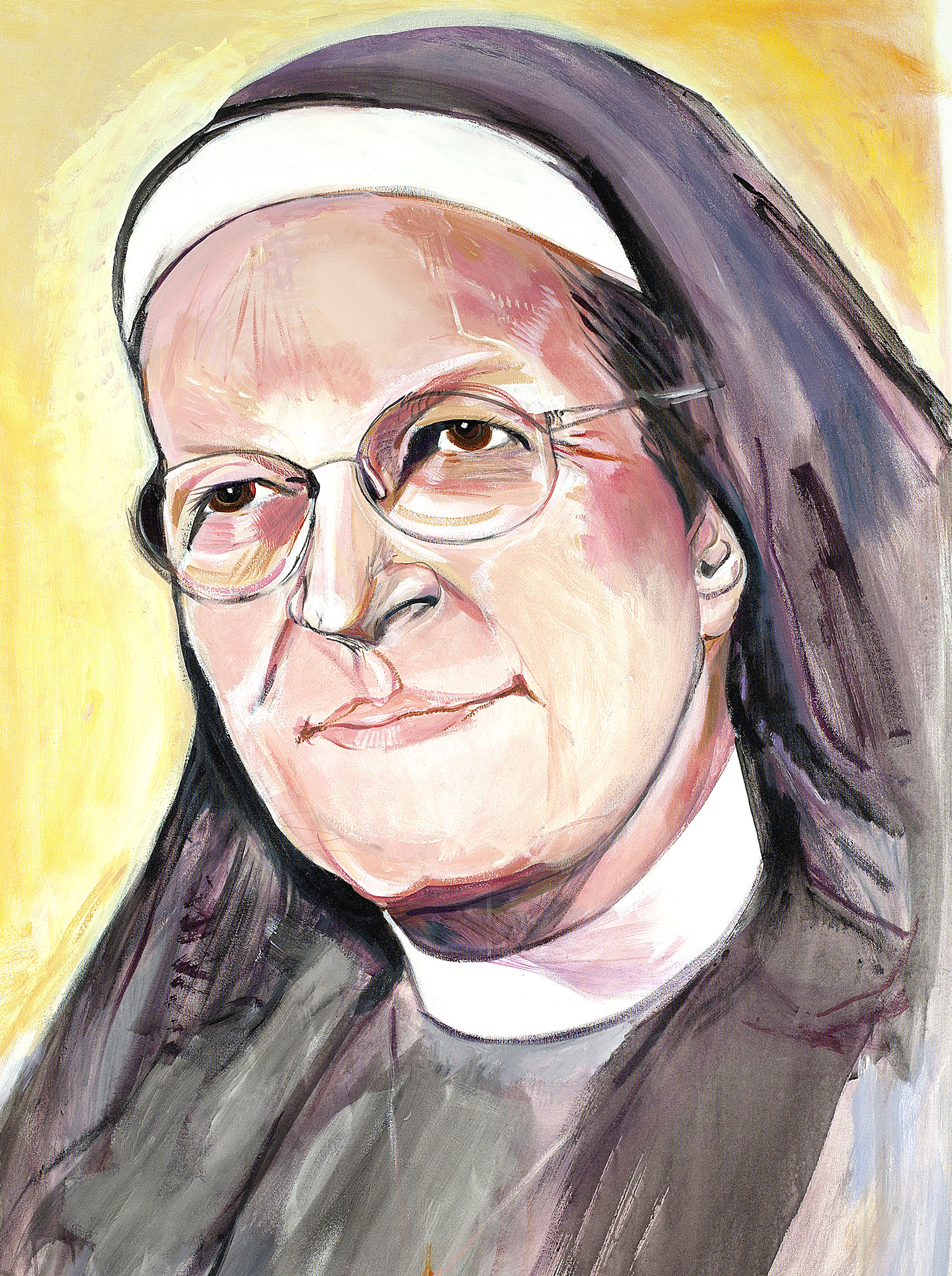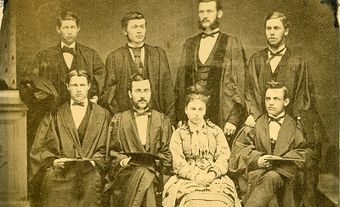Marie Gérin-Lajoie, feminist, pioneer social worker, founder of the Institut Notre-Dame du Bon-Conseil (born 9 June 1890 in Montréal, QC; died 7 January 1971 in Montréal). Gérin-Lajoie is the daughter of Marie Gérin-Lajoie (née Lacoste), a pioneer of the women’s rights movement in Québec. She was the first French Canadian woman to earn a Bachelor of Arts degree (1911).
A Socially Engaged Family
Gérin-Lajoie was born to a wealthy French Canadian family that was intellectually, socially and politically engaged in its social circle. Her father, Henri Gérin-Lajoie, a Montréal lawyer, was the son of poet Antoine Gérin-Lajoie, the grandson of journalist Étienne Parent and brother of sociologist Leon Gérin. Her mother, Marie Lacoste (also named Marie Gérin-Lajoie), was a pioneer of the women’s rights movement in Québec (see Women’s Movement). In 1907, Marie Lacoste founded the Fédération nationale Saint-Jean-Baptiste with Caroline Béïque, an organization that brought together francophone women from professional and charitable organizations. The FNSJB assisted in feminist struggles, including women's access to higher education (see History of Education) and Civil Code reform.
Gérin-Lajoie’s aunts, Justine and Thaïs Lacoste were also active social reformers. Justine Lacoste-Beaubien, alongside Irma Levasseur, the first French Canadian female doctor, founded l’Hôpital Sainte-Justine for children in Montréal. A journalist, Thaïs Lacoste-Frémont was involved in the fight for women’s suffrage. Sent as Canadian delegate to the League of Nations in 1932, she was the first French Canadian woman delegate in Canada.
The First Female French Canadian Graduate
Believing in the importance of education for girls and a supporter of women's access to higher education, Marie Lacoste did everything in her power to ensure that her daughter could continue her studies for as long as she wished. In 1908, Lacoste was involved in the founding of l’École d’enseignement supérieur. This first collège classique (classical college) for girls, was under the direction of the sisters of the Congrégation de Notre-Dame de Montréal and affiliated with Université Laval in Montréal (which became Université de Montréal). In 1911 Marie Gérin-Lajoie graduated from the school, making her the first French Canadian woman to earn a Bachelor of Arts degree in Québec. She ranked first at the provincial level, ahead of her male colleagues.
Though women were not admitted to francophone universities at the time, Gérin-Lajoie studied social sciences on her own time by reading broadly. She wrote for La Bonne Parole, the Fédération nationale Saint-Jean-Baptiste’s newspaper, and was actively involved in the organization itself. In 1918, she moved to the United States and enrolled at Columbia University in New York to study social work.
Founding the Institut Note-Dame-du-Bon-Conseil
When she returned to Québec, Gérin-Lajoie worked with poverty-stricken families in Montréal and founded the department of social services at Hôpital Sainte-Justine. Keeping in line with the type of work in which her mother and aunts engaged, Gérin-Lajoie sought to improve the lives of women and families. In 1923, she took the veil and founded a religious community, the Institut Notre-Dame-du-Bon-Conseil. Focused on community action and social service, as well as domestic and social education, the organization was committed to fighting social and economic inequality. Over the years, the organization has created many community centres, playgrounds and shelters in Montréal’s less privileged parishes.
Gérin-Lajoie also opened a school of social work in 1931 in order to train social workers. In 1939, she contributed to the creation of the École de service social at Université de Montréal, where she taught for many years.
Legacy
In 1996, the Institut de Notre-Dame du Bon-Conseil created the Centre de formation sociale Marie-Gérin-Lajoie (Marie Gérin-Lajoie Centre for Social Work). Its mission is to encourage a "responsible civic engagement in order to combat injustice and violence in all forms." The centre’s main activities focus on various social issues and developing a culture of peace and social mediation.
Since 1994, parc Marie-Gérin-Lajoie, located in the Côte-des-Neiges–Notre-Dame-de-Grâce borough of Montréal, honours both mother and daughter and commemorates their struggle to improve women's lives.
Publications
La Fédération nationale Saint-Jean-Baptiste et ses associations professionnelles (Montréal: Secrétariat de l'École sociale populaire, 1911).
Les Cercles d'études féminins (Montréal: Secrétariat de l'École sociale populaire, 1916).
Le retour de la mère au foyer (Montréal: Secrétariat de l'École sociale populaire, 1932).
Femme de désir, femme d'action. Écrits spirituels de Marie Gérin-Lajoie (1890–1971), (Montréal: Paulines, 2003).

 Share on Facebook
Share on Facebook Share on X
Share on X Share by Email
Share by Email Share on Google Classroom
Share on Google Classroom





